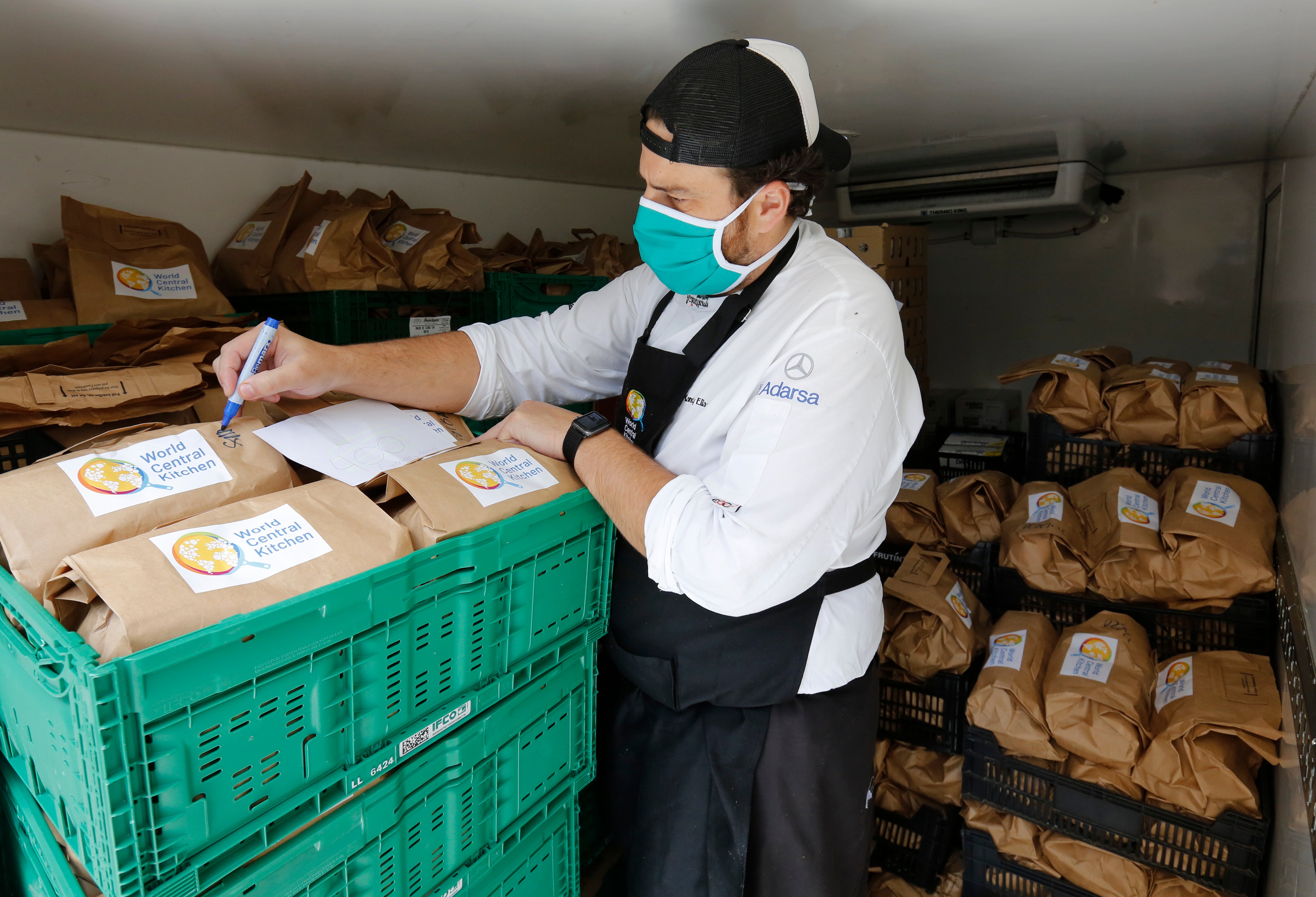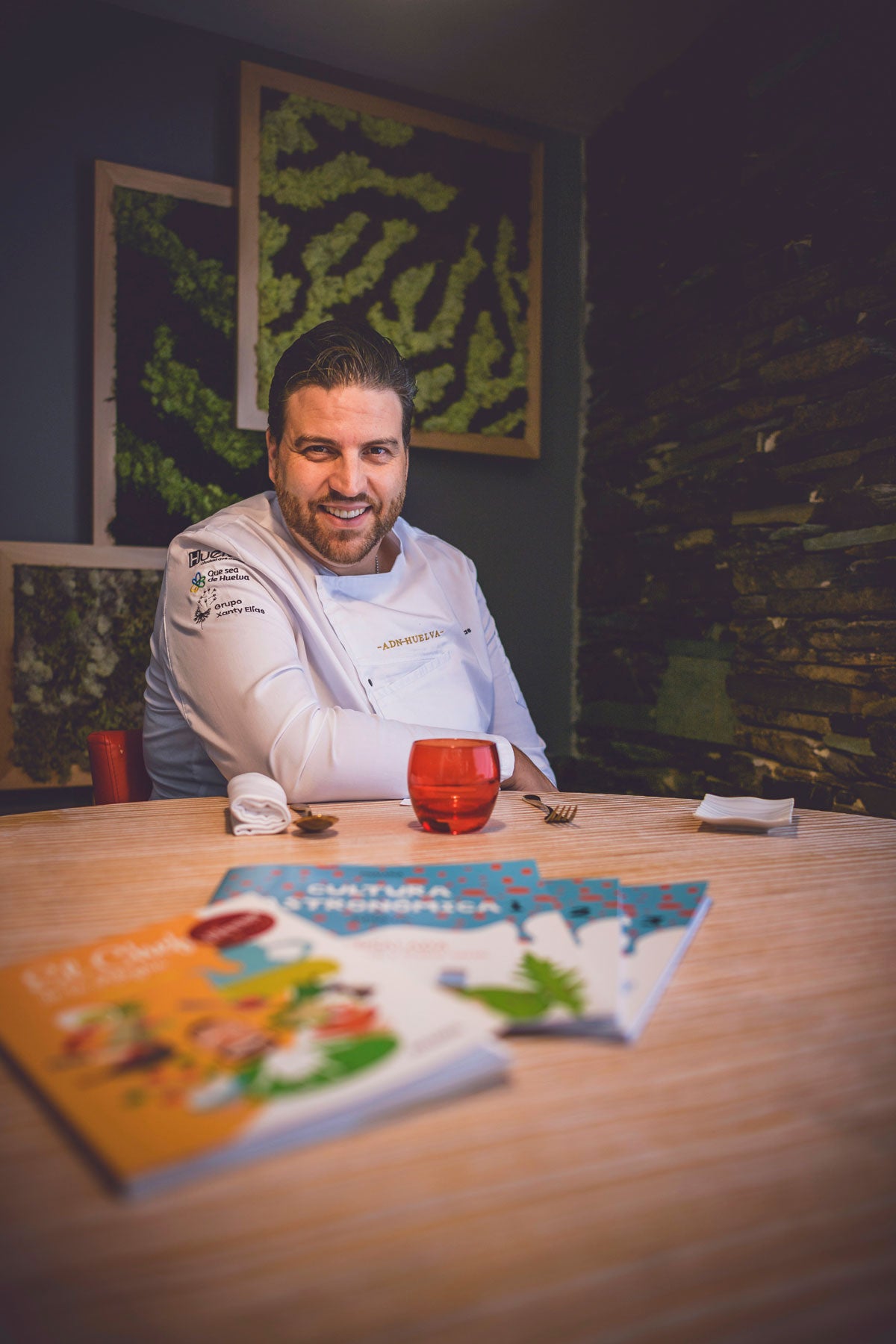Xanty Elías: ‘It’s a bit weird to be compared with Jamie Oliver’
The winner of the Basque Culinary World Prize 2021 tells Sorrel Moseley-Williams about tackling childhood obesity with values, teaching kids to love their culinary heritage, and what Britain can learn

“It’s a bit weird to be compared with Jamie Oliver,” says Xanty Elías, who recently received the Basque Culinary World Prize 2021 for his work addressing childhood obesity in his native Spain. “But we both want to change the mindset that isn’t just about fighting obesity but using gastronomy as a positive tool.”
The low-profile Spanish chef has long immersed himself in social projects that benefit his home community of Andalusia, focusing on the port city of Huelva where his Michelin star restaurant Acánthum was based. With the highest unemployment rate of any province in Spain, in 2017 he co-founded Fundación Prenauta, a foundation with a start-up incubator that sources funding for the region’s entrepreneurs. But he quickly turned his attention to a more pressing subject: childhood obesity.
Despite the general consensus that the Spanish eat a healthy Mediterranean diet, 40 per cent of Spanish children are overweight or obese. The country also has the highest percentage of overweight boys (48 per cent of nine-year-olds are an unhealthy weight, according to the World Health Organisation) as well as Europe’s second-highest rate of childhood obesity. Taking these shocking statistics into consideration, Xanty launched Los Niños se Comen el Futuro (Children Eat the Future) a year after setting up Fundación Prenauta.
By teaming up with companies and institutions across Andalusia, the award-winning initiative teaches schoolchildren traditional Andalusian recipes as well as how to apply academic subjects such as maths and chemistry to cooking, and of course, educating them about healthy eating. The scheme reached more than 6,000 pupils from more than 100 schools in Andalusia during the 2019-20 academic year and hopes to roll out in other parts of Spain. Xanty can’t emphasise enough the importance of sharing a culinary heritage with the next generation.
To improve the diet in the UK, it’s fundamental to raise conscientious children. Being aware of what it takes to cultivate a kilo of rice, where it’s grown, how long it takes a tomato to ripen
He says: “It’s easy to show kids the recipes that we cook every day at home, prepared by our mothers and our grandmothers. It needs to be said, because this catalogue of recipes exists because of them, not because of cooks working in restaurants, the family who generates a gastronomical culture that crosses rough frontiers.”
While Spain’s Mediterranean diet is renowned, a positive attitude towards eating healthily and changing the way people interact with food still needs addressing, he adds. “It’s hugely important that the territory’s zone, at least here in Spain with our exemplary diet, is a reference for us to recognise that these necessary and sustainable foods generate a conscious diet for kids so that they don’t become obese and really learn how to eat.”
Childhood obesity isn’t just a problem in Spain; in the UK, 21 per cent of children aged between 10 and 11 are already obese, a statistic that increases to 27.5 per cent in more deprived areas. And, if children remain overweight or obese into adolescence, they have an 80 per cent chance of being obese into adulthood. These figures may have worsened during the pandemic, since food insecurity caused by financial instability may mean families purchase cheaper, calorie-rich foods. Replicating initiatives with lessons learned through a programme such as Los Niños se Comen el Futuro could help to turn the tide and show children how to make healthy, sustainable choices in other countries.

Xanty says: “While British beef is very good thanks to the pastures, and consumers eat more berries and fruit and veg than in the rest of Europe (although they don’t necessarily cultivate them), climate means everything in agriculture and there is a lack of sun in the UK. By simply looking at what is cultivated, the types of foodstuffs, is phase one. I think Britain needs to generate a more autochthonous concept of cuisine, given that it has been mixed with Indian and French cooking that has, in its way, generated this symbiosis.
“To improve the diet in the UK, it’s fundamental to raise conscientious children. Being aware of what it takes to cultivate a kilo of rice, where it’s grown, how long it takes a tomato to ripen, things like that. Kids have to be aware that not everything is based around paying money for packets in supermarkets.”

The similarities with Jamie Oliver start and end with their shared mission to combat childhood obesity, according to Xanty, but both chefs are concerned about the future. He says: “I run small establishments and don’t have a chain of restaurants like Jamie but we do want to create a conscientious consumer wave for today’s kids who are tomorrow’s adults. To be totally honest, this won’t take 10 years to sort out. Eradicating obesity in one hit is an arduous task and above all, based on values. That’s really important to me and in that sense, Spain is much more advanced than the UK in terms of gastronomical values so as to be able to support a long-term diet that children are aware of, a diet that can also be exported to other countries.”
Since winning the Basque Culinary World Prize in July, Xanty says that Spain hasn’t really started waking up to the obesity bells – yet. “Spain is still asleep. Plus we’re all still a bit drugged by the pandemic, which is logical, isn’t it? But changes are being made little by little, not just in Andalusia but also in Spain; I think that’s the trend.”
He has, however, acted fast to put the €100,000 prize money to good use and opened Finca Alfoliz in September. A sustainable restaurant located in the outskirts of Aljaraque, it aims to reconnect nature and recovery, while strengthening Fundación Prenauta’s mission and the efforts to improve children’s food education. “There’s still a lot of work to be done but we won’t give up and this prize renews our energies to keep fighting,” he says.
Subscribe to Independent Premium to bookmark this article
Want to bookmark your favourite articles and stories to read or reference later? Start your Independent Premium subscription today.







Join our commenting forum
Join thought-provoking conversations, follow other Independent readers and see their replies
Comments